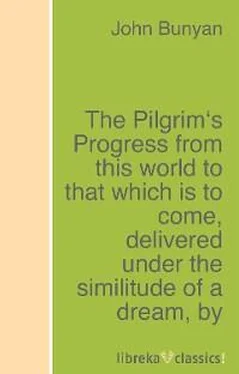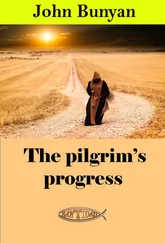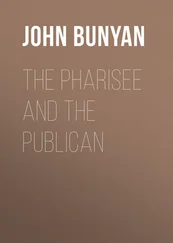Titel: The Pilgrim's Progress from this world to that which is to come, delivered under the similitude of a dream, by John Bunyan
von Scott Hemphill, L. M. Montgomery, L. Frank Baum, John Milton, René Descartes, Baroness Emmuska Orczy Orczy, Karl Marx, Friedrich Engels, Edgar Rice Burroughs, Unknown, Norman F. Joly, Norman Coombs, David Slowinski, Mark Twain, Henry David Thoreau, Stephen Crane, John Goodwin, Nathaniel Hawthorne, Winn Schwartau, Odd De Presno, Sir Walter Scott, Jules Verne, Mary Wollstonecraft Shelley, United States. Central Intelligence Agency, United States, Canada, Willa Sibert Cather, Anthony Hope, Edwin Abbott Abbott, Charles Dickens, Frederick Douglass, William Shakespeare, Bruce Sterling, Franklin Delano Roosevelt, Jane Austen, Thomas Hardy, Sir Arthur Conan Doyle, Edna St. Vincent Millay, Gene Stratton-Porter, Richard McGowan, Frances Hodgson Burnett, United States. Bureau of the Census, Electronic Frontier Foundation, Robert Louis Stevenson, Anonymous, Jerry Bonnell, Robert Nemiroff, Andrew Lang, G. K. Chesterton, John Bunyan
ISBN 978-3-7429-0123-1
Alle Rechte vorbehalten.
Es ist ohne vorherige schriftliche Erlaubnis nicht gestattet, dieses Werk im Ganzen oder in Teilen zu vervielfältigen oder zu veröffentlichen.
Notes:
1. Legends: = Sidenotes [Bible reference] = Bible references
2. Sections are numbered for future reference. These sections have been chosen arbitrarily, i.e., {1}, {2}
3. This is 'Part 1', but is a complete work in itself. Bunyan wrote a sequel ('Part 2') some years after the first part, hence the 'Parts'.
THE PILGRIM'S PROGRESS
From This World To That Which Is To Come
Part One
DELIVERED UNDER THE SIMILITUDE OF A DREAM BY JOHN BUNYAN
The Author's Apology for his Book
{1} When at the first I took my pen in hand
Thus for to write, I did not understand
That I at all should make a little book
In such a mode; nay, I had undertook
To make another; which, when almost done,
Before I was aware, I this begun.
And thus it was: I, writing of the way
And race of saints, in this our gospel day,
Fell suddenly into an allegory
About their journey, and the way to glory,
In more than twenty things which I set down.
This done, I twenty more had in my crown;
And they again began to multiply,
Like sparks that from the coals of fire do fly.
Nay, then, thought I, if that you breed so fast,
I'll put you by yourselves, lest you at last
Should prove ad infinitum, and eat out
The book that I already am about.
Well, so I did; but yet I did not think
To shew to all the world my pen and ink
In such a mode; I only thought to make
I knew not what; nor did I undertake
Thereby to please my neighbour: no, not I;
I did it my own self to gratify.
{2} Neither did I but vacant seasons spend
In this my scribble; nor did I intend
But to divert myself in doing this
From worser thoughts which make me do amiss.
Thus, I set pen to paper with delight,
And quickly had my thoughts in black and white.
For, having now my method by the end,
Still as I pulled, it came; and so I penned
It down: until it came at last to be,
For length and breadth, the bigness which you see.
Well, when I had thus put mine ends together,
I shewed them others, that I might see whether
They would condemn them, or them justify:
And some said, Let them live; some, Let them die;
Some said, JOHN, print it; others said, Not so;
Some said, It might do good; others said, No.
Now was I in a strait, and did not see
Which was the best thing to be done by me:
At last I thought, Since you are thus divided,
I print it will, and so the case decided.
{3} For, thought I, some, I see, would have it done,
Though others in that channel do not run:
To prove, then, who advised for the best,
Thus I thought fit to put it to the test.
I further thought, if now I did deny
Those that would have it, thus to gratify.
I did not know but hinder them I might
Of that which would to them be great delight.
For those which were not for its coming forth,
I said to them, Offend you I am loth,
Yet, since your brethren pleased with it be,
Forbear to judge till you do further see.
If that thou wilt not read, let it alone;
Some love the meat, some love to pick the bone.
Yea, that I might them better palliate,
I did too with them thus expostulate:--
{4} May I not write in such a style as this?
In such a method, too, and yet not miss
My end--thy good? Why may it not be done?
Dark clouds bring waters, when the bright bring none.
Yea, dark or bright, if they their silver drops
Cause to descend, the earth, by yielding crops,
Gives praise to both, and carpeth not at either,
But treasures up the fruit they yield together;
Yea, so commixes both, that in her fruit
None can distinguish this from that: they suit
Her well when hungry; but, if she be full,
She spews out both, and makes their blessings null.
You see the ways the fisherman doth take
To catch the fish; what engines doth he make?
Behold how he engageth all his wits;
Also his snares, lines, angles, hooks, and nets;
Yet fish there be, that neither hook, nor line,
Nor snare, nor net, nor engine can make thine:
They must be groped for, and be tickled too,
Or they will not be catch'd, whate'er you do.
How does the fowler seek to catch his game
By divers means! all which one cannot name:
His guns, his nets, his lime-twigs, light, and bell:
He creeps, he goes, he stands; yea, who can tell
Of all his postures? Yet there's none of these
Will make him master of what fowls he please.
Yea, he must pipe and whistle to catch this,
Yet, if he does so, that bird he will miss.
If that a pearl may in a toad's head dwell,
And may be found too in an oyster-shell;
If things that promise nothing do contain
What better is than gold; who will disdain,
That have an inkling of it, there to look,
That they may find it? Now, my little book,
(Though void of all these paintings that may make
It with this or the other man to take)
Is not without those things that do excel
What do in brave but empty notions dwell.
{5} 'Well, yet I am not fully satisfied,
That this your book will stand, when soundly tried.'
Why, what's the matter? 'It is dark.' What though?
'But it is feigned.' What of that? I trow?
Some men, by feigned words, as dark as mine,
Make truth to spangle and its rays to shine.
'But they want solidness.' Speak, man, thy mind.
'They drown the weak; metaphors make us blind.'
Solidity, indeed, becomes the pen
Of him that writeth things divine to men;
But must I needs want solidness, because
By metaphors I speak? Were not God's laws,
His gospel laws, in olden times held forth
By types, shadows, and metaphors? Yet loth
Will any sober man be to find fault
With them, lest he be found for to assault
The highest wisdom. No, he rather stoops,
And seeks to find out what by pins and loops,
By calves and sheep, by heifers and by rams,
By birds and herbs, and by the blood of lambs,
God speaketh to him; and happy is he
That finds the light and grace that in them be.
{6} Be not too forward, therefore, to conclude
That I want solidness--that I am rude;
All things solid in show not solid be;
Читать дальше












